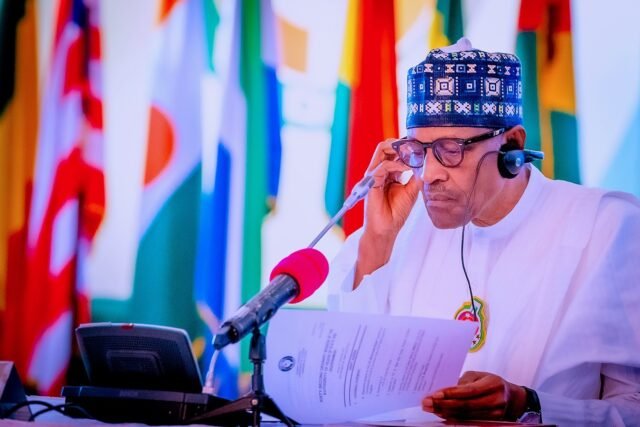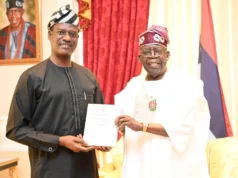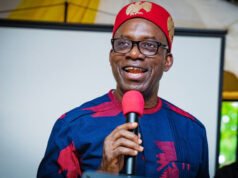When Muhammadu Buhari took office in May 2015, Nigeria’s digital ambition was modest: broadband penetration hovered around 6%, fintech and startups remained nascent, and ICT contributed just under 9% to GDP. By the close of his presidency in 2023, both the infrastructure and the narrative had shifted dramatically. Under his watch, Nigeria witnessed rapid expansion in broadband, the emergence of Africa’s first central bank digital currency, landmark tech legislation, and surging ICT sector contributions to national GDP. Yet this period was also defined by regulatory contradictions, policy missteps, and mounting criticism.
This article unpacks Buhari’s legacy through the lens of Tech GDP: How Nigeria’s Digital Economy Fared Under Late President Buhari, weaving together data, policy, and impact to assess whether his digital economy era delivered in substance or just in vision.
Table of Contents

Broadband Boom & Connectivity Growth
At inception, Nigeria’s digital infrastructure was sparse: only 6% broadband coverage and minimal mobile penetration. By mid‑2023, mobile broadband coverage had increased to approximately 46%, thanks to expansive 4G rollout and the introduction of multi‑operator 5G in six cities.
Ministerial updates highlighted that broadband access soared from 33.7% in August 2019 to 44.65% by late 2022. Meanwhile, active 4G base stations grew from 13,823 to over 36,000, raising national 4G coverage to nearly 78%. As a result, data costs plummeted from around ₦1,200/GB to about ₦360/GB, unlocking mass access.
Despite these gains, the National Broadband Plan 2020–2025 aimed for 70% penetration and urban speeds of 25 Mbps. As of May 2025, Nigeria reached just under 49%, meaning the 2025 goal remains out of reach.
Digital Identity and SIM‑NIN Linkage
Buhari’s central ambition to digitalise Nigeria’s identity ecosystem brought about a sweeping SIM‑NIN linkage initiative. At launch, fewer than 7 million Nigerians held National Identity Numbers; by his final full year, nearly 100 million IDs had been issued, boosting digital inclusion and streamlining KYC for banks and fintech actors.
The policy culminated in the disconnection of over 60 million unlinked SIMs between 2023 and September 2024, reducing active subscriptions from nearly 220 million to 155 million. While hailed for bolstering security, the policy sparked concerns over privacy, access disruption, and no tangible improvement in criminality rates.
Digital Economy Strategy & Institutional Reforms
Buhari’s administration introduced major institutional frameworks to reorient Nigeria toward a tech-driven economy. In November 2019, he unveiled the National Digital Economy Policy & Strategy (NDEPS 2020–2030), designed around eight key pillars including infrastructure, digital literacy, data governance, and indigenous content.
In 2019, the Ministry of Communications was formally redesignated as the Ministry of Communications and Digital Economy—marking a strategic shift in governance scope. Later initiatives included the National Data Policy, Executive Order 5 mandating indigenous‑first procurement to boost local tech firms, and the establishment of bodies like the National Centre for AI & Robotics and the National Data Protection Bureau.
Policy Wins: Nigeria Startup Act & Local Tech Promotion
A highlight in tech legislation: the Nigeria Startup Act, signed in October 2022, offered regulatory clarity, tax incentives, a startup seed fund, and structural support via the National Council for Digital Innovation and Entrepreneurship. While signed toward the end of Buhari’s tenure, implementation began under the Tinubu administration.
Executive Order 5 (2018) mandated preference for indigenous tech vendors in procurement, giving homegrown players a major boost. Complementary data governance regulations helped cement sovereignty and compliance frameworks.

eNaira: Pioneering CBDC, Faltering Uptake
In October 2021, Nigeria officially launched the eNaira, Africa’s first central bank digital currency, posited as a tool for financial inclusion, smoother remittances, and streamlined welfare payments.
Yet early adoption was weak. Less than 0.5% of Nigerians were active users one year into launch; most wallets remained dormant. Challenges included clunky user experience, merchant reluctance, infrastructure constraints, trust deficits, and minimal integration with fintech ecosystems.
Growing Tech‑Sector GDP Share
The results were visible: the ICT/digital economy’s share of Nigeria’s GDP rose steadily, from roughly 8.5% in 2015 to nearly 19.5% by late 2022, and at times reaching upward of 18.44% in Q2 2022, compared with oil’s 6.33% in the same quarter.
Even with a reported first-quarter 2023 figure of 17.47%, this represented a notable rise from the previous 16.2%. By mid‑2025, Nigeria’s digital economy contribution hovered around 16–18%, with ambitions targeting 21% in the near term.
Talent, Investment, and Startups
Buhari-era policies coincided with a surge in venture capital, from around US $70 million in 2015 to over $1 billion by 2022, powering unicorns like Flutterwave, Interswitch, Andela, and OPay.
Digital skills programmes—such as free training platforms and youth development initiatives—emerged alongside the NITDA’s Digital States and later 3MTT programmes (launched post‑2023). Still, the so‑called “japa wave”—mass emigration of skilled professionals—undermined tech talent retention and placed domestic startups under strain.
Regulatory Tension: Bans and Cash Chaos
Despite progress, Buhari’s regime exhibited regulatory inconsistencies:
- The Twitter ban (June 2021), enforced after Buhari’s tweet was deleted, lasted seven months. It disrupted SMEs, digital creators, civic discourse and cost the economy an estimated $26.1 billion.
- The cryptocurrency ban (February 2021) prohibited banks from servicing crypto-linked accounts. Despite official bans, peer‑to‑peer trading thrived: Nigeria handled $59 billion in crypto in the 12 months from mid‑2023 to mid‑2024—nearly half of Sub‑Saharan Africa’s total.
- The currency redesign (2022–2023) triggered a cash shortage. Withdrawal of old Ʀ200/500/1,000 notes created ATM rundowns, transaction chaos, and eroded trust in sometimes fragile digital platforms.
These contradictions—pioneering digital expansion while censoring platforms and restricting financial innovation—left many critics seeing a policy disconnect.
Limitations and Criticisms
While broadband and ICT contributions grew, the full National Broadband target remained elusive. Payment infrastructure struggled to scale reliably, especially during policy shocks.
Critics also highlight that the promises of SIM‑NIN linkage—greater security and reduced fraud—did not translate into measurable declines in crime or improved public safety. Privacy advocates flagged potential data misuse and surveillance risks.
Some regulatory moves—like strict forex controls, capped SaaS import expenditures, and expensive licensing—hampered startup growth and innovation. Legal reforms like the updated NITDA Act sparked startup concerns over licensing fees, fines, and restrictive oversight.
The Bottom Line: Buhari’s Ambiguous Digital Legacy
Buhari leaves behind a digital economy transformed in scale yet troubled in execution. Broadband expanded. Tech startups thrived. ICT GDP share nearly doubled. Legislation, institutions, and policies entered the playbook of future administrations.
But the same period carried regulatory overreach, inconsistent policy messaging, and execution faults—from cash crises to bans that stifled entrepreneurs. His vision was bold—Africa’s first e‑currency, sweeping identity reforms, multi‑operator 5G. But often, implementation fell short or revealed deeper structural gaps.
As Nigeria charts its post‑Buhari digital future, the ambition is no longer under question, but the importance of effective, inclusive, transparent implementation is clearer than ever.

Summary Table
| Dimension | Key Outcome by 2023 | Remarks |
|---|---|---|
| Broadband penetration | 46–49% (vs 6% in 2015) | Sub‑target vs 70% goal |
| ICT contribution to GDP | 17–19.5% (vs ~8.5% in 2015) | Outpaced oil sector |
| NIN Enrollment | ~100M IDs (from < 7M at start) | Improved KYC; privacy concerns remained |
| Startup Ecosystem | VC inflow grew tenfold; Startup Act enacted | Implementation delayed; talent drained |
| eNaira adoption | <0.5% users one year post-launch | Pioneering but underutilised |
| Twitter & Crypto bans | Economic losses; regulatory chilling effect | Stifled SME growth and innovation |
| Currency redesign impact | Cash crisis; fintech strain and loss of trust | Execution disrupted informal and digital sectors |
Looking Ahead
When current digital economy minister Dr Bosun Tijani projects a 21% ICT GDP share target, it builds on Buhari’s base but confronts the same challenges: infrastructure gaps, regulatory inconsistency, talent flight, and digital inclusion disparities.
Programs like 3MTT (launched in 2023) and NITDA’s Digital States initiative aim to fill skills gaps. But the success of these depends on consistent policy, reliable infrastructure, and private sector trust, not just headline reforms.
Conclusion
In the story of Tech GDP: How Nigeria’s Digital Economy Fared Under Late President Buhari, the central arc is of transformation shadowed by contradiction. Under Buhari, Nigeria built digital rails, empowered startups, and grew its ICT GDP share—yet regulatory crackdowns, infrastructural fragility, and inconsistent execution dulled the fruits of policy ambition.
As Nigeria’s digital economy matures under new leadership, the lessons from Buhari’s terms are clear: vision must be matched with coherence; innovation must be permitted alongside oversight; and economic goals must be inclusive, robust, and resilient.
Join our WhatsApp community
Join Our Social Media Channels:
WhatsApp: NaijaEyes
Facebook: NaijaEyes
Twitter: NaijaEyes
Instagram: NaijaEyes
TikTok: NaijaEyes





